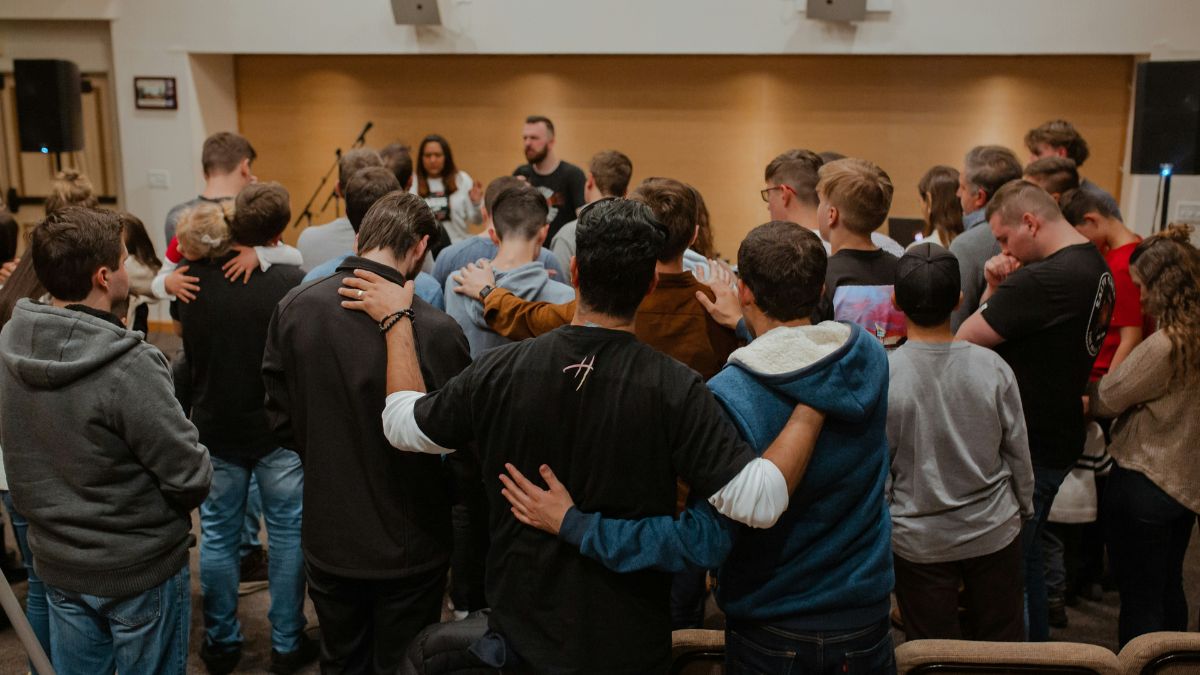


Last week, the Republican National Committee (RNC) announced the “Pride Coalition.” The coalition is a partnership with the “Log Cabin Republicans,” an organization that describes itself as “LGBT conservatives and straight allies who support fairness, freedom, and equality for all.”
Although many find the move disheartening, it will only shock those who haven’t been paying attention. Al Mohler has described the relationship between Republicans and evangelicals as a “marriage of convenience.” In this case, marriage is a particularly painful and ironic metaphor.
And to be clear, the convenience in this marriage goes both ways. For many within the RNC, evangelicals are just one of several voting blocs, albeit an important one. For many evangelicals, the Grand Old Party (GOP) is simply a better fit than the alternative, given their stance on social issues like abortion, gender, and religious freedom. And, some on both sides are taken in by what quirky French theologian Jacques Ellul called “the political illusion.”
When all problems and all solutions are reduced to politics, all hope rests in gaining political power. Thus, when it comes to engaging in politics, Christians must always work to keep straight what are the means and what are the ends. A decision to partner with an LGBTQ group only makes sense if the “end” is to regain political power. The same decision, however, makes no sense if power is only the means and something else, such as limited government, is the end.
The problem with this coalition isn’t that some in the LGBTQ camp wish to support a political party of limited government. That’s been true for a long time. In contemporary politics’ pragmatic exercise, it never hurts to have unexpected allies vote for your candidate. However, welcoming voters to a political party is different than creating an alliance with a group that hopes to advance its own goals within a political platform. This particular coalition signals a change in the GOP’s platform and party positions, as well as broader changes in what it means to be “conservative.”
A core element of the GOP platform has long been so-called “family values,” sardonic shorthand for the party’s often inconsistently expressed and lived-out traditional moral framework. Key to this framework is the centrality of the nuclear family, the notion that marriage between one man and one woman who stay married is not merely a social construct but essential for both a healthy society and the wellbeing of the next generation. Therefore, it is the government’s task to protect the family, not redefine or deconstruct it. The more the government protects the family, the more non-governmental entities are able to collectively secure the future.
But, moral consensus around the nuclear family is only possible if it rests on grounds other than government. That requires grounding truth itself in something outside the government. Today, however, ours is what Os Guinness calls a “cut flower society.” Though we still have the trappings of so-called “family values,” no shared moral foundation remains for it. The quest for freedom has devolved into a pursuit for radical autonomy, especially in sexual matters.
All of which brings us back to this “coalition.” The RNC is mistaken to think that it is possible to be fiscally or politically conservative without, on some level, being culturally conservative first. You can’t have limited government while at the same time embracing a movement wishing to deconstruct and redefine marriage and the family since only the family reliably produces citizens able to govern themselves.
Whenever family fails, the state is compelled to step in. America’s founders, even with all their flaws, understood this. John Adams said, “We have no government armed with power capable of contending with human passions unbridled by morality and religion. Avarice, ambition, revenge, or gallantry would break the strongest cords of our constitution as a whale goes through a net.”
Chuck Colson was fond of saying: “The Kingdom of God will never arrive on Air Force One.” We vote how we must and do what we can to love our neighbors in political ways, but we must not put our hope in candidates or parties as if political power for our party is the end. In a Christian view, political ends are never ultimate ends.
Christians must maintain a clear-headed vision of the importance of social issues in the public arena. That means determining what is true theologically, first, and then letting political chips fall where they may. As my friend, Focus on the Family president Jim Daly put it, “We must, lovingly and winsomely, never stop contending for the things that matter to God.” Family and marriage matter to God.
Resources:
The Political Illusion
Chuck Colson | BreakPoint | August 5, 2016
2018, The Political Illusion
John Stonestreet | The Point | January 2, 2018
The Political Illusion
Warren Cole Smith | BreakPoint Articles | July 11, 2016
Have a Follow-up Question?
Up
Next















